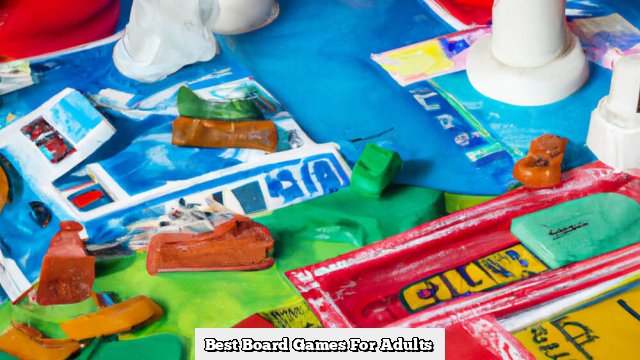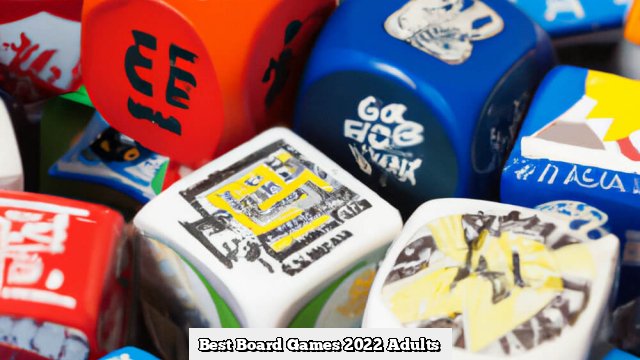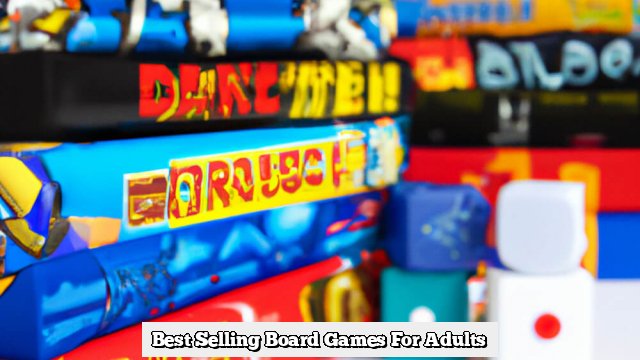Introduction
Board games for blind adults provide a unique and rewarding opportunity for sight-impaired individuals to socialize, learn, and challenge themselves. These special adaptations of traditional board games make playing with friends accessible to everyone, regardless of visual status. Plus, they can even help improve cognitive skills like memory and problem solving.
Aside from providing visually impaired adults with the same entertainment opportunities as their seeing peers, board games offer a number of additional benefits that are specific to those with vision impairments. By participating in activities such as tactile chess and other adapted versions of popular classics, blind adults can effectively cultivate skills associated with tactile learning, spatial awareness, touch-based memory recall and more. Additionally, the tactile nature of these games improve fine motor skills in blind players due to the necessity for handling the pieces. In this way, any proficiency gained in play may contribute to greater independence in everyday life. For example, one can gain an understanding of directional movement from playing checkers or improve problem-solving ability while strategizing during a game of Risk or Settlers of Catan.
Moreover, board games designed specifically for blind players serve another purpose in bringing sighted peoples’ attention to blindness and make them aware that members of this community value playful fun like anyone else. As such inclusion should be seen within society as a whole – not just when it comes to recreational activities! This can help break down certain barriers between those who do and don’t have vision issues by creating meaningful opportunities for building bridges with each other instead. This type of communication often acts like an elixir within our communities too; where there is laughter shared among people who feel connected enough through playtime then powerful feelings can be created–generating relationships that some might otherwise not have ever had the chance to experience at all!
Different Types of Board Games
Tactile board games allow blind and visually impaired adults to explore the board game world through their sense of touch. These games typically involve feeling differently shaped pieces or memorizing braille cards. For example, Braille Monopoly allows players to feel around the classic Monopoly board. And a tool such as 3-D labels can be used with most traditional board games to help both new and experienced players better track the game’s progress.
Audio board games are also available for blind and visually impaired adults. These games usually feature synthesized speech or recorded narration that provides instructions, game advice and feedback on where you are in your turn. Audio Memory Cards is one of these types of audio games and uses mixed sounds to help players remember different cards in the set so they can win the round.
Finally, there are accessible board games which offer tactile, visual, audio and other game experiences seamlessly integrated into a single playing experience. Examples include HabiJax, which combines audio responses with a tactile game cube featuring uniquely tactile shapes, allowing players to “inhabit” each turn through their sense of touch; xBox Adaptive Controller Kit which supports interactive storytelling with visuals and sound cues that respond to every move made; Eye Gaze Board Games for Windows 10 featuring eye tracking capabilities; and ADL Board Games which modify existing traditional family-materials with enlarged pieces that create an easier playing environment for everyone involved.
Resources for Blind Players
Board games provide a fun and engaging way for blind adults to socialize, think critically, and have interactive entertainment. Plus, they are easy to learn and adaptable to different skill levels. Traditionally, board games relied on sight to play; but with advances in technology, there is now an ever-growing range of board games that can be played by blind or visually impaired adults.
Online gaming has become increasingly popular over the years, and there are numerous websites dedicated solely to blind players who enjoy accessing computerized versions of classic board games like chess, checkers, and dominoes. Online platforms also give blind players access to newer more complex games such as adventure or strategy titles that may not have been viable in physical form due to pieces essential for game play being too small to be seen without visual aids. These audio-guided tools allow gamers from virtually anywhere in the world to connect with others and engage in various challenges.
Whether online or in person, there is a wide variety of accessible board games for blind adults. Board game cafes offer special facilities for their visually impaired customers hosting special game nights featuring tactile game sets that can be felt instead of seen with audio instructions printed on Braille cards. Additionally, some independent businesses make custom board games specifically tailored towards the needs of visually impaired players. With these unique methods it’s never been easier for blind people to partake in recreational activities like everyone else.
Tips for Playing Board Games with Blind Players
When playing tactile or audio board games with blind players, it is important to consider certain factors that often go overlooked in more traditional board game experiences. First and foremost, it is imperative to make sure all game material is tactilely distinct from each other; the shapes should be distinguishable from one another and nothing should be too small for players to handle easily. It is also a good idea to limit the number of objects on the board so that blind players do not become overwhelmed at any given point. Additionally, bright colors can be misleading when playing with blind adults; you should use contrast instead as opposed to just relying on color. Furthermore, an audio component may help blind players keep track of their progress within games as they cannot always see what’s happening. You could label items with stickers that make noise when touched or provide audio descriptions of the movements necessary throughout gameplay. Finally, before beginning a game or even considering purchasing it, research each option thoroughly to ensure they are designed specifically for visually impaired people or have features that will benefit them during play.
Inclusive Board Games
As board games continue to gain popularity, game designers have become increasingly inventive in making their creations more accessible and inclusive for all players. This is particularly relevant when considering that in the past, those with disabilities such as visual impairments were excluded from playing the regular versions of popular board games. In recent years however, thanks to innovative design approaches, inclusive board games for blind adults have become available to help give everyone an equal chance to join in the interactive world of tabletop play.
Inclusive board games for blind adults are designed with multiple senses in mind. As well as creating larger or raised symbols for easy identification by touch, some designs also include audio cues and speakable actions that can aid in understanding the rules of a game. These type of personalized adaptations can then tailor certain aspects of gameplay so that it’s easier for blind or visually impaired players to enjoy.
Additional features within these types of tailored designs may be tactile components that incorporate different shapes and textures, allowing players with vision impairment an increased sense of engagement when handling game pieces during play. In some cases, games may even come with a range of tools and modifications that enable players to customize and personalize their gaming experience – such as adapters or alternatives should they not have access to dice and cards provided with a regular copy of the same game.
Inclusive board games allow for many players traditionally excluded from certain experiences due to physical constraints a chance to participate and engage like everyone else. By advancing accessibility through mindful design, it allows everyone from any age or walks of life an opportunity (and fun!) way to learn while taking part in recreational activities and social events together – all while leveling out the playing field without compromising on valuable gaming time!
Supporting Organizations
There are many organizations that offer support in the form of board games for blind adults. These organizations provide a range of products and services to help these individuals with their everyday needs, mobility challenges and social goals.
The American Printing House of the Blind (APH), is an organization that focuses on supporting those who are blind, visually impaired or otherwise disabled by providing them with educational and recreational materials. They offer a variety of accessible board game options which have been adapted specifically for enjoyable and independent play for adults who may be visually impaired. The pieces used in the games are designed to embossed or tactile markings so they can be distinguished from each other without having to view them.
The National Federation of the Blind (NFB) has created a confidence-building project called Goalball which is a fast-paced game designed for people who cannot see. It consists of two teams; up to three members per team, using a ball with bells inside it to throw and block opponent’s scoring attempts. The NFB Goalball program operates throughout the United Statesand provides different environments where participants can practice the game safely and independently while improving coordination, motor skills toning muscles, among other abilities taken into account when playing blind sports.
In addition, Abiliplay provides accessible toys that allow blind adults to play traditional board games independently overcoming some common difficulties caused by vision loss such as difficulty with reading character names/traits, multicolored cards, spinning knobs etc.
Conclusion
Board games can be a great way for blind adults to enjoy fun, enjoyable time with friends and family. Board games can help the blind hone skills such as problem-solving, strategy, communication, and integrating knowledge. Additionally, these activities can provide an opportunity for socializing and building relationships with other people. Furthermore, board games are even more accessible now with many versions available in audio or Braille format or that rely on tactile features like raised surfaces. With all these benefits and options now available, board games provide a great activity for blind adults to enjoy in their spare time.

I love playing all kinds of games – from classics like Monopoly to modern favourites like Ticket to Ride.
I created this blog as a way to share my love of board games with others, and provide information on the latest releases and news in the industry.





